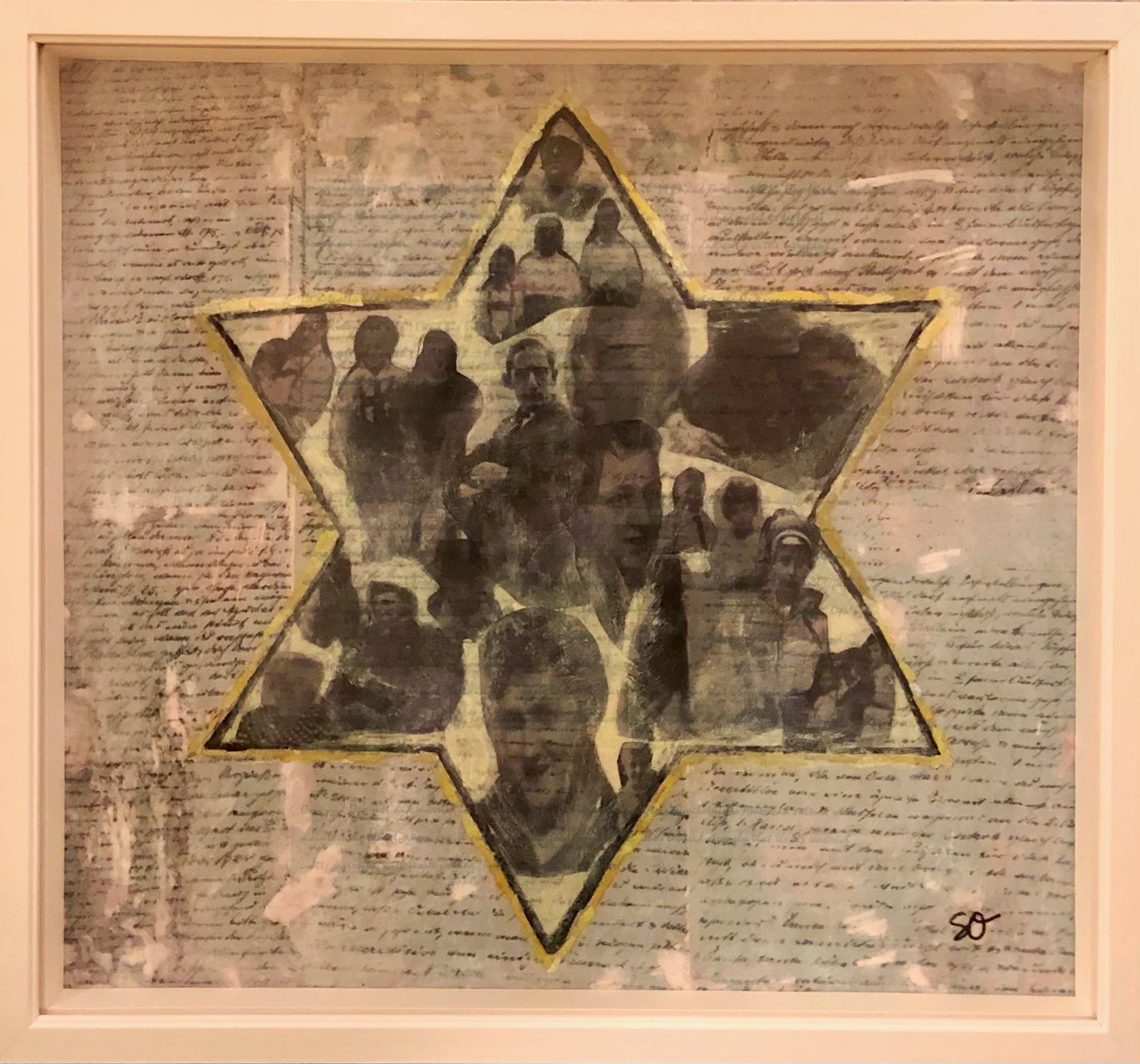
Mixed Media Collage (magazine, ink transfer, photo transparency, acrylic, ink)
2021
Framed, 20 ¼ h x 22 ¼ w
The following text is transcribed over the picture.
Your grandparents, Omi and Opa, were both born in Germany. Opa in 1919 and Omi in 1921. Opa lived in a large city, Nuremberg, where his Papa was a co-owner of a metal warehouse that supplied metal to factories throughout the country. Omi was from a town a distance from Nuremberg. Her dad was a cattle merchant. Omi’s family was Jewish. Opa’s mom was Protestant, so his extended family was mixed Jewish and Christian. He actually had an aunt on his mom’s side who was active in the Nazi party.
When the Nazis came to power in 1930 (when Opa was 11 and his brother was 6), the Nazis believed that the Aryan race was the master race and that people who weren’t “perfect” and Aryan were inferior and subhuman. This included Jews, anyone with any Jewish blood, Catholics, people with disabilities, gay people, Romani people and others. The concepts of diversity and equality, as we know them, were reviled by the Nazis and ultimately resulted in the death of over 10 million people (6 million Jews, including over 1 million children) at the hands of the Nazis.
Opa, his father and his brother were arrested on Kristallnacht, the night of broken glass, in Germany. His mom had previously died of a heart condition. Opa told me that they were taken to Dachau, a concentration camp, where they were treated very harshly, made to march for hours and hours around the camp, in the cold, without warm clothes or much food. People were beaten. It was terrifying.
They were released after three weeks and Opa was able to gain entry to the US as a refugee. Omi’s family also came to the US as German Jewish refugees.
Opa’s brother, living in France to avoid the Nazis, was eventually arrested, sent to Drancy concentration camp, and then to Majdanek, an extermination camp, where he perished at age 19. Opa’s father (your great-grandfather) was sent to what became a Jewish ghetto in Koln, where he was murdered. Omi told me that when their ship from Germany passed the Statue of Liberty, her father (whom she had never seen cry) sobbed and sobbed, full of relief and gratitude. She was 16.
Omi and Opa met and married in Manhattan. They worked very hard to assimilate into American culture while maintaining their German Jewish culture as well- food, prayers, etc. They believed strongly that the US was rich in its diversity, with people coming from all places and cultures.